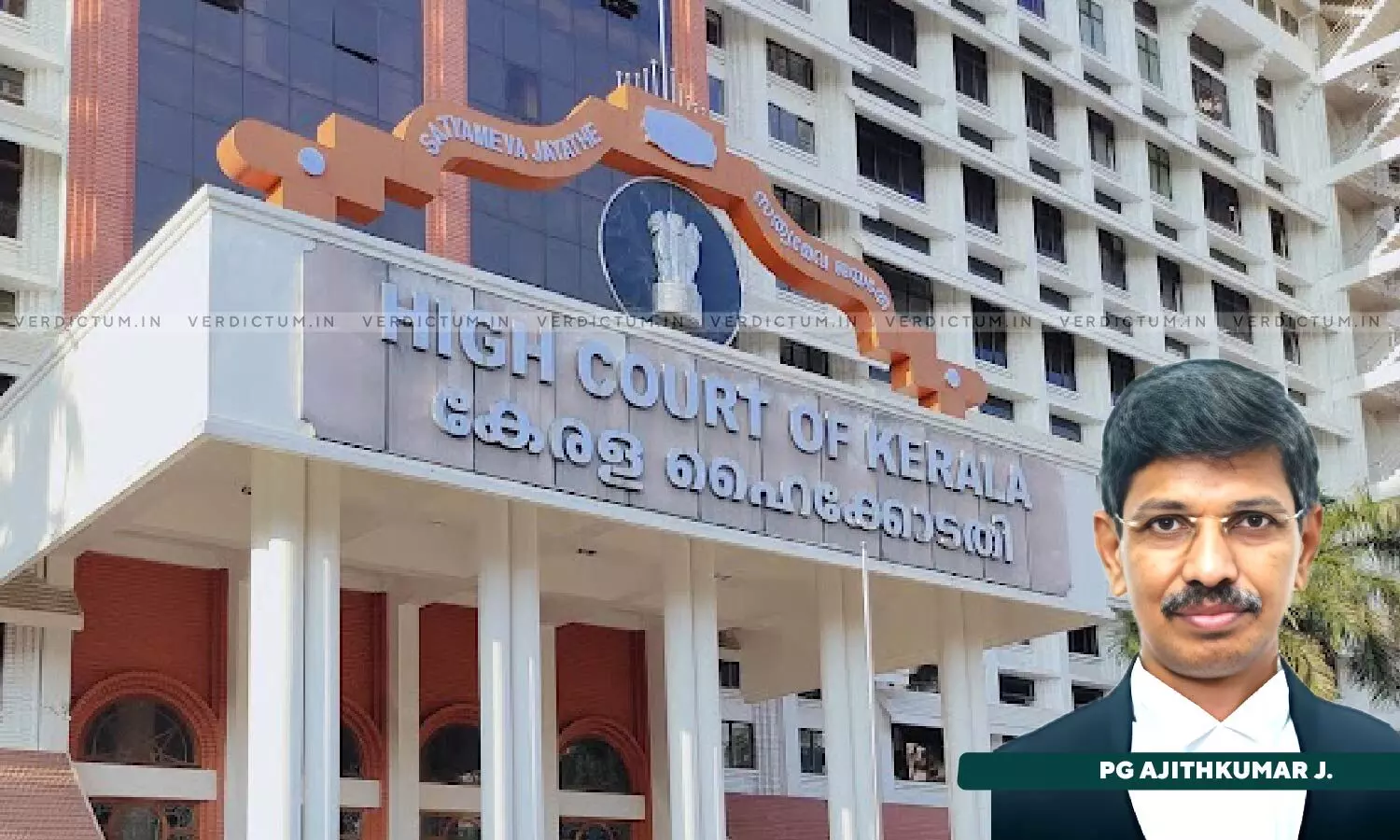
Jurisdiction Of Magistrate To Try Offences Cannot Be Taken Away Even If Children’s Courts Are Specified Via Notification For Speedy Trial: Kerala HC
 |
|The Kerala High Court held that the jurisdiction of the Magistrate to try offences cannot be taken away even if the Children’s Courts are specified by a notification for the purpose of speedy trial.
The Court held thus in a batch of Revision Petitions challenging the common Judgment of the Additional Sessions Judge by which the conviction of the accused was set aside and the case was remanded to the Trial Court for a fresh trial.
A Single Bench of Justice P.G. Ajithkumar observed, “The Magistrate who held trial in these cases, is the forum competent ordinarily to try such offences. For the purpose of speedy trial only, the children's courts were specified. By such notification, jurisdiction was conferred upon the children’s court in respect of offences against children or of violation of child rights. It cannot be said as result of such an interdiction, jurisdiction of the Magistrate to try the offences was taken away. But propriety demands that such offence should be tried by the children's courts.”
Advocate S. Rajeev represented the Petitioners while Public Prosecutor Noushad K.A. represented the Respondents.
In this case, the victims filed Revision Petitions and challenged the common Judgment of the Additional Sessions Judge. The Judgments of the Trial Court were set aside on the sole ground that before pronouncing the Judgments, the Children’s Court was notified under Section 25 of the Commissions for Protection for Child Rights Act, 2005 (CPCR Act). The Petitioners contended that, having trial before the Magistrate already begun and the Children's Court notified for the purpose of speedy trial alone, the Appellate Court ought not to have set aside the Judgments of the Trial Court.
The High Court in the above context of the case, noted, “The learned counsel for the petitioner place reliance on Rattiram v. State of M.P. [(2012) 4 SCC 516] to fortify his contention that the trial held by the Magistrate are not vitiated. That was a case where the special court constituted under the Scheduled Caste and Scheduled Tribe (Prevention of Atrocities) Act, 1989 took cognisance of the offence without the case being committed and held trial. The contention was that for non-compliance of the mandatory provision of Section 193 of the Code, the trial held by the special court, which being a sessions court, was invalid. Conflicting views taken in that regard were considered by a three Judge Bench of the Apex Court and held that the trial was not vitiated only for the reason of such a procedural infraction. The said decision has no direct application here.”
The Court further took note of the following principles laid down by the Apex Court –
i) When the special court is constituted for speedy trial, the procedural errors, omissions or irregularities which did not result in a failure of justice are not reasons for setting aside the judgment.
ii) If the court which held the trial is a court of competent jurisdiction, the superior court shall be slow in interfering with the judgment of the trial court on the ground of procedural infraction.
iii) Speedy trial and fair treatment of a victim based on the constitutional paradigm and principles are two essential requirements of criminal trial.
iv) It is the sacrosanct obligation of all concerned to see that the administration of criminal justice is not protracted thereby resulting in oppression and denial of rights of not only the accused but also the victim.
The Court said that if the Judgments of the Trial Courts in these cases are set aside, the result would be a second trial which has the devastating effect of causing inordinate delay, asking the Respondent to stand trial anew and compelling the victims to give evidence again, which is against the jurisprudential principle underlying the provisions of the Protection of Children from Sexual Offences Act, 2012 (POCSO Act).
“Although the provisions of the PoCSO Act have no application in these matters, the spirit of incorporating provision for a speedy trial in the cases under the PoCSO Act; similar are the cases here, shall be borne in mind”, it added.
Accordingly, the High Court set aside the impugned Judgments, remitted the Appeals, and directed the Sessions Judge to restore the Appeals on files and proceed to dispose of the same.
Cause Title- Shahabanath v. State of Kerala & Anr. (Neutral Citation: 2024:KER:85371)
Appearance:
Petitioners: Advocates S. Rajeev and K.K. Dheerendrakrishnan.
Respondents: Public Prosecutor Noushad K.A., Advocates P.A. Harish, and V.V. Surendran.